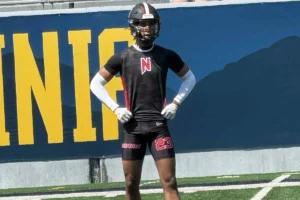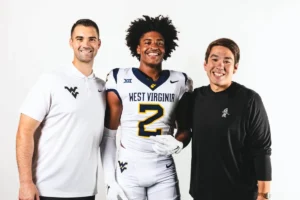When West Virginia University needed a hero on the mound, Ben McDougal stepped up and delivered one of the most critical pitching performances of the season. The junior left-hander from Bridgeport, West Virginia, tossed 4.1 scoreless innings in relief to lead the Mountaineers to a crucial 10-3 victory over Kansas State.
It wasn’t just a win — it was WVU’s 40th of the season, tying a school record first set in 1944 and matched again in 2023. More importantly, the win reduced the Mountaineers’ magic number to just one. With one more victory, they’ll claim the Big 12 regular season championship outright and set a new all-time wins record for the program.
Coming into the game, the bullpen had been a point of concern. The Mountaineers had suffered three recent walk-off losses — against Marshall, Pitt, and Kansas State — in games they had led late. Friday night’s meltdown was especially painful, blowing a 7-2 lead in the ninth.
Enter McDougal. Despite struggling in his recent outings — failing to retire a batter in each of his last two appearances — he put all of that behind him on Saturday. McDougal allowed just one hit and one walk across 4.1 innings, throwing 58 pitches, 38 of them for strikes. His performance stabilized the game and allowed the Mountaineers’ offense to take control.
That offense was powered by Kyle West, who delivered the biggest hit of the night. With WVU clinging to a 4-3 lead, West crushed a grand slam to straightaway center field in the fourth inning, capping off a six-run explosion that effectively put the game out of reach. The home run, his ninth of the season, traveled 401 feet and left the bat at an impressive 111 mph.
Helping fuel the offense was right fielder Jace Rinehart, a transfer from Mannington, West Virginia. Rinehart went 3-for-4 with two doubles, lifting his batting average to .356 and reaching 50 RBIs — the most on the team. Across the two games in the series so far, he’s 5-for-7 with three doubles, a home run, and four RBIs.
Though the offensive fireworks grabbed the headlines, McDougal’s resilience may have saved the Mountaineers’ season. After watching leads vanish late in multiple games, WVU desperately needed a stabilizer in the bullpen. On Saturday, McDougal gave them exactly that.
The Mountaineers will look to clinch the Big 12 title and break the school record for wins in the rubber match of the series at 1 p.m. Sunday. One more victory would make history for a team that’s shown grit, talent, and just the right amount of flair.
And yes — for one more day, we’ll sing it loud and proud:
Ben McDougal has an arm, E-I-E-I-O.
















